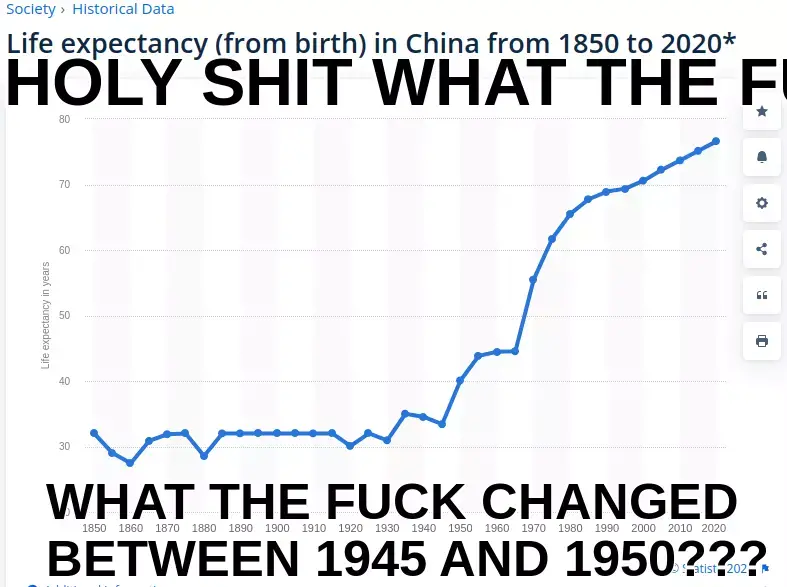

Define your variables. Wtf is “b,” the number of votes candidate B would have, plus one for no reason? Why is candidate T getting t votes and not t-1 votes? Terrible math, try again.


Define your variables. Wtf is “b,” the number of votes candidate B would have, plus one for no reason? Why is candidate T getting t votes and not t-1 votes? Terrible math, try again.
“Wow, the Fire Nation is just like the latest country the news told me to hate, good thing America’s around to Share Our Greatness™️with them!”


My brother is a veteran, and when he came back he started “self-medicating” with meth to treat his PTSD. He was constantly on the verge of crisis and making violent threats (carefully phrased to not be actionable). At the time, I was working at an Amazon warehouse, at times doing 60 hours weeks, and at the time I was on Facebook and if I got off work and wanted to check it, he’d see I was online and if I left him on read it would be a whole thing. I described it as being a 911 operator on call 24/7. I basically wrote him off as dead to me, but my parents wouldn’t and that was the worst part. I remember visiting and we tried to go out for dinner but then he texted my mom with another crisis and now she’s in tears again, like always. It was constant. And he’d accuse them of all sorts of stuff, my mom still had one of those phones you had to press the button multiple times to get a letter and if she had a typo he’d accuse her of doing it on purpose. All he did all day was be alone with his thoughts, going through the same cycles, shooting up meth and absorbing whatever crazy right-wing bullshit he was listening to.
My parents are pretty well off and they were there for him. They tried to check him into all sorts of mental hospitals and rehab, but he’d check himself out early. There was an incident early on where he checked himself into the VA and they tried to cut him off Xanax cold turkey, which is potentially life-threatening, and he responded violently. This put a flag on his record which made it difficult to get him treatment later, and he was also careful to phrase his threats ambiguously enough to not be institutionalized.
It was pretty clear to me that this was only going to end one way, and at one point I thought about going up there and killing him myself, before he could hurt an innocent person. But the cops kept a watch on his house until it happened and he took a gun and led them on a car chase to somebody’s house, pulled a gun on them, and got shot in the arm. When I heard it happened, I didn’t know if he’d live or die and didn’t care, I was just relieved that it had finally happened and that nobody else got hurt. He went to jail for a bit and that got him off the meth so he’s doing better now.
What really gets me about it though is how easy we got off, though. Compared to the people on the other side of the war, the people actually living in Iraq and Afghanistan, hundreds of thousands of people slaughtered, countless civilians. The children terrified of sunny days because that’s when the drones fly. How many times over do you have to multiply the pain and suffering I felt when I saw my mother’s face in tears to get even an inkling of the suffering inflicted on those people?
And it’s all just out of sight, out of mind. We went to war and people hardly even noticed, everybody just went about their lives as normal like it wasn’t even happening. People don’t even give a shit about veterans killing themselves on the daily in VA parking lots and waiting rooms because they can’t get care, they sure as shit don’t care about brown people on the other side of the world that the news treats as subhuman. And now, Bush gets rehabilitated on Ellen and the libs expect me to vote for Biden. It’s absurd how little people care about all the people they murdered.
I have no idea what thought process led you to post that but ok.
There were a lot of really simple, basic improvements that the peasants in China desperately needed. Anybody could’ve done what was needed, but nobody else was willing to, because nobody else cared. There was no special technical economic policy that uplifted them, it was just a willingness to address their needs that no other faction possessed.
Of course I know that, did you not read what I said?
“China’s conditions were much worse off than places like the US, so obviously it’s possible to improve conditions to be better than per-revolutionary China (which is not saying much) without communism.”
It’s not hard to double your life expectancy when you’re starting out with the same life expectancy that existed in the Roman Empire almost 2,000 years prior. Thanks, Mao!
It really is wild that no other faction was willing to do anything that would increase Chinese life expectancy above that of the Roman Empire, yes. I agree, thanks, Mao!
It’s pretty funny that you criticize Deng for implenting economic reforms that led to further industrialization, while also crediting the rise in life expectancy to that very same industrialization.
What even is your ideology? And can you answer my question about who should’ve come to power instead of the communists?
Over 60, actually. I think that doubling live expectancy over a single generation is, in fact, pretty impressive.
So I take it you’re not a Maoist or a Dengist. Can you tell me who you think should’ve been in power in China instead? The KMT? You can see how much they did on the graph, if you don’t find the CPC’s numbers impressive then I’m sure you’d hate them even more. The invading Japanese perhaps? The European colonizers? Or maybe you think the Qing dynasty should never have been overthrown.
Deng was alive and well when two of those stock exchanges were opened
That’s… what I said? Obviously, Deng was the one who implemented economic reforms, such as opening stock exchanges and allowing foreign investment. Some Maoists consider this to be right-deviationist and counter-revolutionary, and that he should’ve continued more in line with Mao’s policies. That’s why I asked if you’re a Maoist, since you consider his reforms incompatible with socialism.
I’m not sure who’s whole argument was “look at the improvements only possible under Communism.” China’s conditions were much worse off than places like the US, so obviously it’s possible to improve conditions to be better than per-revolutionary China (which is not saying much) without communism. It’s just that in China’s case, it was the communists that did it.
Oh, so you consider Deng’s reforms to be right-deviationist? Are you a Maoist, then?
Whether you consider the CPC to be communist or not, the fact still remains that they’ve made a lot of improvements in the lives of the average Chinese person.
Yeah I got that, at least after they posted a rickroll. Guess being an idiot is a defense mechanism when they realized they had nothing.
Milton Friedman and Ayn Rand

That’s incredible, I honestly did not see that one coming.
So tell me, what’s your best guess at what Chinese life expectancy was before the CPC came to power, and what do you think it is now? Do you dispute the numbers from before the communists were even in power? Or do you think they’re still living in mud huts?
What theory would that be, lol?
Here is my source do you have a source that disputes that? Or is your belief based entirely on unfalsifiable faith?
Also curious if you think Chinese life expectancy is still like 35 or what lmao
You may also be interested in what the World Bank, that infamous communist propaganda rag, has to say:
Over the past 40 years, the number of people in China with incomes below $1.90 per day – the International Poverty Line as defined by the World Bank to track global extreme poverty– has fallen by close to 800 million. With this, China has contributed close to three-quarters of the global reduction in the number of people living in extreme poverty.
I’m celebrating the increase in life expectancy from 35 to higher than that of the US, actually, which is the win I think it is.
The point is not the immediate increase in that specific 5 year period, the point is the clear trend of rapid, long term increases after a long period of stagnation, with the pivitol turning point being exactly when the CPC came to power. You’re supposed to look at the whole graph.
I support whatever this is so idk what that makes me

The first thing to note is that Buddhism is a broad term that contains a lot of different belief systems. It is also plagued by poor translations of terms that don’t translate well into English, especially without looking meanings of the original terms.
Imo, your friend has distorted and misrepresented Buddhist teachings in order to justify not changing their behavior regarding meat-eating.
I’d challenge the use of the term “deserved” altogether, and I’d say “caused” might be a more accurate interpretation. Karma is not about an intelligent, all-powerful being passing judgement and smacking you down. It’s sometimes referred to as “the law of cause and effect.” It’s described as a function of the universe, the same way that physical laws makes objects fall to the ground when dropped. The exact way in which this works is up to interpretation. More secular-minded Buddhists might point to logical and observable consequences to explain it, while more spiritually-minded ones might argue that it’s more of an invisible, unexplainable force that carries over between lifetimes.
To use an example: a child that is fed a hamburger by their parents does not have knowledge of the animal’s suffering that was required to make it, nor do they have agency to control their diet or to prevent the animal from being harmed. But, an animal is still harmed through the process. The intent and agency of the actor are not important in the same way that it doesn’t matter if a ball on top of a slope is pushed or knocked over. It would only really matter if you’re dealing in terms of judgement.
It is not your responsibility to enforce karma on others. Karma isn’t a positive or negative force, and just because something happens that doesn’t make it good or fair or deserved. Rather, the idea is to navigate the world in such a way that you minimize undesirable consequences. Buddhist precepts are a list of guidelines that are intend to do just that, the precept about nonviolence being the first. The idea is: “Bad things seem to happen a lot when people go around killing living beings so it’s probably better to not do that, generally speaking.”
You are correct that your friend’s interpretation and worldview is a mess of contradictions that could just as easily be used to justify harm to humans, and that they’re blatantly violating the first precept. But I would argue that they’re not accurately representing Buddhist teachings, and their views shouldn’t be held as representative of the belief system, though admittedly, like I said there are a lot of different traditions and beliefs.